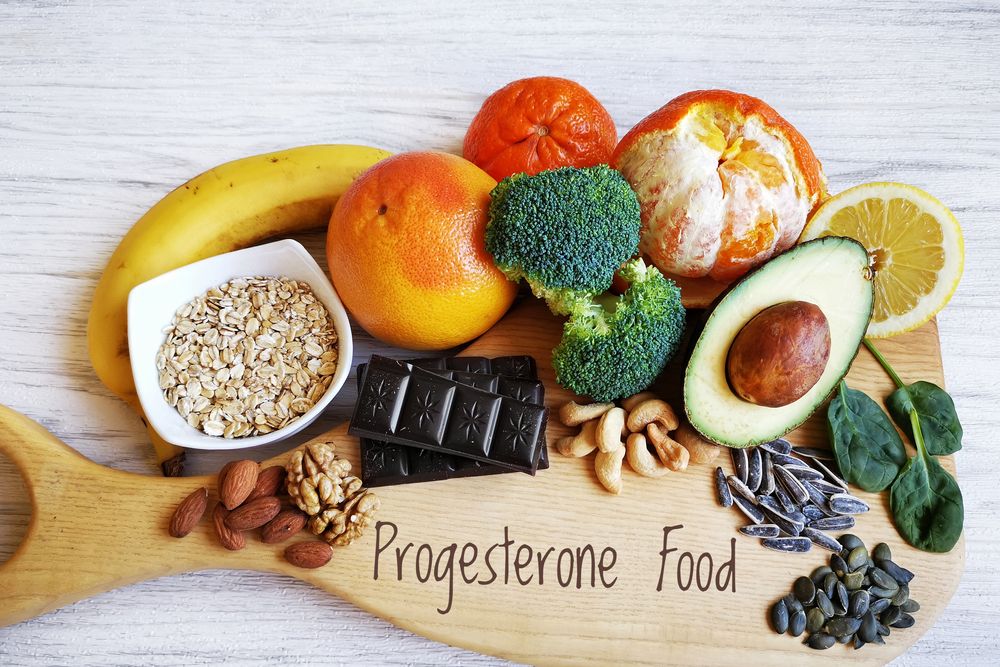Hormones are powerful chemical messengers that influence nearly every function in your body—from energy and mood to sleep, digestion, metabolism, and reproductive health. When your hormones are in balance, your body runs smoothly. But when they’re out of sync, even small imbalances can lead to fatigue, weight changes, skin issues, anxiety, and more.
While there are many factors that affect hormone levels—like stress, sleep, and physical activity—your diet plays a critical role in supporting hormonal health. Making intentional food choices can help regulate hormones naturally and create a stronger foundation for overall wellness.
Here’s how to build a diet that promotes hormonal balance, one simple step at a time.
1. Prioritize Whole, Unprocessed Foods
Processed foods are often loaded with refined sugars, unhealthy fats, and artificial additives that can disrupt your hormones over time. A diet focused on whole, nutrient-dense foods gives your body the raw materials it needs to produce and regulate hormones properly.
Aim to fill your plate with:
-
Fresh vegetables and fruits
-
Whole grains like oats, quinoa, and brown rice
-
Healthy fats (avocados, nuts, seeds)
-
Lean protein sources (chicken, fish, tofu, legumes)
Eating a variety of real foods ensures you’re getting the vitamins, minerals, and antioxidants that support hormone production and reduce inflammation.
2. Balance Blood Sugar with Every Meal
Unstable blood sugar can lead to spikes in insulin—a hormone that regulates glucose levels. Over time, constant highs and lows in blood sugar can throw off other hormones like cortisol, estrogen, and testosterone.
To support steady energy and hormone levels:
-
Include a source of protein in each meal (eggs, fish, beans)
-
Choose complex carbohydrates over refined ones (sweet potatoes instead of white bread)
-
Add fiber-rich foods to slow digestion and reduce sugar spikes
-
Avoid sugary snacks and drinks that cause energy crashes
Keeping your blood sugar stable helps regulate appetite, supports mood, and reduces stress on your endocrine system.
3. Don’t Fear Healthy Fats
Fat is essential for hormone production—especially steroid hormones like estrogen, progesterone, and cortisol. Eating enough of the right kinds of fat helps your body maintain healthy hormone levels and promotes better skin, brain, and immune function.
Good sources of hormone-supportive fats include:
-
Avocados
-
Nuts and seeds (especially flax, chia, and pumpkin)
-
Olive oil
-
Fatty fish like salmon, sardines, and mackerel
-
Coconut oil (in moderation)
On the flip side, try to limit trans fats and processed vegetable oils, which may increase inflammation and interfere with hormone signaling.
4. Eat Cruciferous Vegetables Regularly
Cruciferous vegetables like broccoli, cauliflower, Brussels sprouts, and kale contain compounds that support estrogen metabolism and detoxification. They’re particularly helpful for balancing estrogen levels in both men and women.
These vegetables are also high in fiber and antioxidants, making them great for overall gut and hormone health. Try roasting, steaming, or adding them to stir-fries or smoothies to boost your intake.
5. Support Your Gut Health
Your gut microbiome plays a surprising role in hormone regulation. It helps break down and eliminate excess hormones, supports nutrient absorption, and communicates directly with the endocrine system.
To promote gut health:
-
Eat fermented foods like yogurt, kefir, sauerkraut, and kimchi
-
Include prebiotic foods like garlic, onions, asparagus, and bananas
-
Drink plenty of water to support digestion and regularity
-
Limit overuse of antibiotics and highly processed foods
A healthy gut creates a better environment for hormone balance—and overall well-being.
6. Manage Stress with Adaptogenic Foods
Chronic stress raises cortisol levels, which can throw off your entire hormonal system. While lifestyle factors like sleep and relaxation are key, certain foods and herbs may help your body adapt to stress more effectively.
Adaptogens like ashwagandha, maca, and holy basil have been used traditionally to support adrenal health and reduce the impact of stress on the body. You can find them in supplement form or as powders to mix into smoothies or tea.
In addition, magnesium-rich foods like leafy greens, pumpkin seeds, and dark chocolate help calm the nervous system and support hormone balance naturally.
7. Avoid Excess Caffeine and Alcohol
While caffeine and alcohol aren’t inherently harmful in moderation, excessive intake can negatively affect your hormones. Caffeine can elevate cortisol and disrupt sleep, while alcohol impacts liver function—essential for hormone metabolism and detoxification.
If you rely on several cups of coffee or alcohol daily, try cutting back and replacing with herbal teas, water, or nutrient-rich smoothies. You’ll likely notice improvements in energy, mood, and hormonal symptoms.
8. Eat Consistently and Don’t Skip Meals
Skipping meals or following extreme diets can put stress on the body and disrupt hormone production. Irregular eating patterns may raise cortisol and lower leptin and ghrelin—the hormones that regulate hunger and fullness.
Instead, aim for balanced, regular meals every 4–5 hours. If intermittent fasting works for your body, keep it gentle and avoid under-eating. The key is to nourish your body consistently and avoid sending it into survival mode.
9. Hydrate Well
Water plays a crucial role in nearly every bodily function, including hormone transport and detoxification. Dehydration can impair your body’s ability to circulate hormones effectively and eliminate excess waste.
Aim for at least 8 cups of water per day, more if you’re active or live in a hot climate. Herbal teas, mineral water, and water-rich fruits and vegetables (like cucumber, melon, and celery) can all contribute to your daily intake.
10. Listen to Your Body and Make Adjustments
Hormonal needs change throughout your life—due to age, stress levels, sleep patterns, and other health conditions. Pay attention to how your body responds to certain foods. Track your cycle, energy levels, mood, and digestion.
If something feels off, consider working with a registered dietitian or healthcare provider who understands hormonal health. Personalized guidance can help you fine-tune your diet to meet your unique needs.





